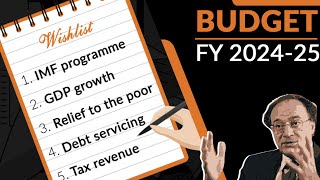During the recent days, different government leaders have been speaking in different tones on the crucial issue of the Madressah education reform, presenting the picture of a house divided against itself. Minister of Religious Affairs Ijaz-ul-Haq has been reported to be at odds with the Education Minister, Lieutenant General Javed Ashraf Qazi (Retd), over the issue.
Opposed to the government's Madressah reform plan, he publicly stated that we should not get apologetic in the face of outside criticism of our religious schools' conduct. Haq having the reputation of being a loose cannon in the Federal cabinet, he, perhaps, did not need to be taken seriously.
However, the strong resistance that some members of the cabinet and president of the ruling party, Chaudhry Shujaat Hussain, offered to the government's decision regarding the deletion of the religion column from the machine readable passports, leading to the reversal of the decision, is serious indeed.
Still, the reversal could be explained as a tactical concession to the religious parties' alliance, Muttahida Majlis-i-Amal (MMA), which is viewed in some quarters as the establishment's "B team". But what is hard to understand is Shujaat's statement last Sunday, vis-à-vis President General Pervez Musharraf's announcement only two days earlier before a special gathering of foreign correspondents.
Addressing foreign journalists in the wake of the second and failed bombing attempt in London, the President, it may be recalled, said that all foreign students, numbering around 1400, studying in various Islamic schools, are to be sent back home.
Talking to local journalists at his Lahore residence, Shujaat observed that expelling foreign students was no solution to the problem of extremism, and that those having no-objection certificates from their countries would not be sent back. He said that he would take up the matter with the President and the Prime Minister to get it resolved.
There seems to be nothing wrong in letting the students complete their courses as long as their governments are willing to take responsibility for them by issuing no-objection certificates. But the ruling party chief should have persuaded the government leaders first about the merit of his view of the situation, letting them to announce a revised decision rather than to make his own proclamations.
Despite his pro-religious right outlook, Shujaat is an experienced and pragmatic politician. And surely, he is also conscious of the fact that he owes his present position not to his own political muscle, but the choice and purposes of the establishment. Things being what they are, he is not expected to take positions publicly that run counter to those of the President, unless the apparent contradictions are pre-designed.
The foreign office spokesman did try to clear the air by stating that only President Musharraf's word on this issue is final. But the sceptics, of which we have aplenty, might still want to argue that although the government has good reason to get rid of the foreign students and appease its Western critics, it does have an interest in the Jehadi potential as part of its regional security strategy.
Hence, it would not wish to resort to a wholesale crackdown on Madressahs, some of which are suspected of serving as training grounds for Jehadis. Hence, it may be part of a deliberate policy to allow different elements within the government to create confusion on Madressah-related issues. That summation may or may not be valid. But what is plain is that the President and his team do not agree among themselves on how best to deal with the Madressah problem, which is not very encouraging for the country's internal peace and external image.
BR100
7,583
Increased By
39.5 (0.52%)
BR30
24,238
Increased By
202.6 (0.84%)
KSE100
72,797
Increased By
207.9 (0.29%)
KSE30
23,213
Increased By
76.4 (0.33%)






















Comments
Comments are closed.